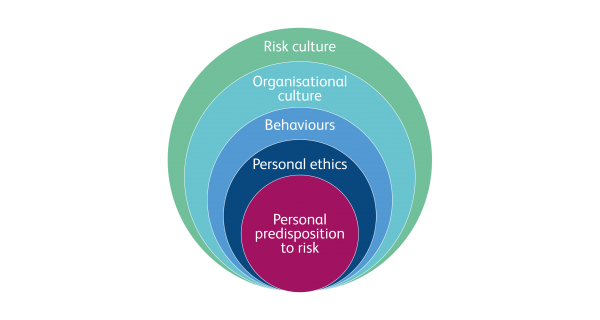Sue Robb of 4Children talks to Julie Laughton and Alison Britton from the Department for Education about the role of childminders in delivering the 30 hours free entitlement.

The importance of reviewing risk culture
Victoria Robinson, head of Marketing & Communications at the Institute of Risk Management, discusses the importance of reviewing risk culture in an organisation’s ongoing work
According to the Office for National Statistics there were an estimated 5.43 million people employed in the public sector for September 2019, which was 27,000 more than for June 2019. 16.5 per cent of all people in paid work were employed in the public sector for September 2019 it is a huge employment source, but what exactly is the public sector?
Simply put, the public sector is responsible for providing all public services in the UK, from the emergency services and healthcare, education and social care, to housing and refuse collection. We as the public rely on these services and often take for granted the valuable services they provide.
Risk management is inherent in all organisations and never before has there been so much pressure on the public services, from lack of funding, the recent COVID-19 outbreak and continuity plans of how to cope, and change in policy all fuelling public opinion and that’s not to mention the other macro and micro factors influencing how effectively these services are delivered.
We asked two Institute of Risk Management members about their key considerations for the challenges they face as risk professionals in the public sector, and the importance of risk culture.
Lettie Pringle, IRMCert, Risk Manager, NHS Borders
“The variety of work within this role is unbelievable and the diversity of the healthcare system makes sure it never becomes boring. It covers everything from financial, clinical, political and reputational risks to name a few. Healthcare has micro businesses within it, so your role can range from being involved with project management risks of estates to supporting risk owners with risks relating to service delivery such as physiotherapy, laundry and facilities management.
"I support everyone from front line staff such as nurses and medics to directors and executives, helping them understand their role and the risk management processes of NHS Borders, assisting them through each stage of the process from identifying risks to reviewing them.
“It is always vital to remember why you are doing the role; to improve and maintain the safety of those who use the services within healthcare and those who provide it. I have great pride in the risk management processes we implement as the decisions made from these help keep patients, staff and the public safe and reduce organisational liabilities.
“Culture within healthcare can be varied due to risks being orientated towards patient care, encouraging staff to widen their scope into clinical and corporate risks is ongoing and as an organisation, we have to continually ensure there is an understanding of the importance of these types of risks to deliver services. This can be challenging.’
“For example, the importance of analysing risks around workforce and sustainability and the impact this can have on the delivery of care of a patient and patient safety. Overall, whilst it is imperative that a proportional response to risk is given, it can be difficult when you are dealing with people’s health impacts.”
Guidance for public sector organisations
The Institute has developed guidance for organisations wanting a greater understanding of their own risk culture and the practical tools which can drive change. As the business press shows daily, embedding reliable risk management into an organisation is a difficult task. Boards must both consistently prioritise risk management and continually review their culture, people and processes.
So what do we mean by risk culture? Risk culture is a term describing the values, beliefs, knowledge, attitudes and understanding about risk shared by a group of people with a common purpose. This applies to all organisations - including private companies, public bodies, governments and not-for-profits.
An effective risk culture is one that enables and rewards individuals and groups for taking the right risks in an informed manner. The IRM has developed its own risk culture framework which can be found on our website along with guidance documents.

Simon King CMIRM, Chief Risk Officer, UK Ministry of Defence (including strategic headquarters for the Armed Forces)
“I’m a fairly recent addition to the civil service compared to many. It is modernising which is good but I can sometimes see where the themes in Yes Minister came from. Working with military colleagues is a really positive challenge; they have such a focus on having the information they need to make decisions and take action. The senior officers have developed their leadership, critical thinking and analytical skills to such a level that you have to really be on your game to get the best out of them and the time with them.
“There are some 200,000 people in MoD and many of them are making risk management decisions every day. I’m responsible for the internal policy, framework and approach and for encouraging professionalism in the practise of risk management.
“Embedding the right risk management culture is paramount across the whole enterprise and the public sector is no different to any other organisation, we’re subject to as much, if not more, scrutiny by the very notion of the work we do and the huge responsibility that carries.”
Risk management guidance
Both Lettie and Simon recently took part in a webinar, risk management in the public sector, this can be viewed here. (search public sector).
Further guidance and information on tackling enterprise risk management issues is available on our website, including our range of qualifications to help you up-skill, further you career and help protect your organisation. We also offer a: Demystifying Risk Culture: Strategies and Techniques for Successful Risk Culture Management training course.
Despite greater awareness of risk culture, few organisations are in a position to properly tackle it. Our one day practical course will enable you to understand what risk culture means in your organisation. How you can improve risk taking, and how to implement effective risk management techniques.
Company Focus
Located in Bromley, Japanese Knotweed Eradication Ltd has been providing solutions in the treatment and removal of Japanese Knotweed (Fallopia Japonica) for over a decade. During this time we have mastered a repertoire of methods, from herbicidal treatments to landscaping solutions, tailored to address the unique challenges our clients face with this pervasive weed.
Event Diary
UKREiiF has quickly become a must-attend in the industry calendar for Government departments and local authorities.
The multi-award-winning UK Construction Week (UKCW), is the UK’s biggest trade event for the built environment that connects the whole supply chain to be the catalyst for growth and positive change in the industry.
Supplier Profiles
Geo Energy
At GeoEnergy Design, we're on a mission to disrupt the traditional way heating and cooling ha
Latest Features
Professor Harith Alani, director of the Knowledge Management Institute at the Open University explains how AI can be used for good and bad.
Alex Lawrence, head of health & social care, techUK sets out techUK’s Five Point Plan for CareTech.












